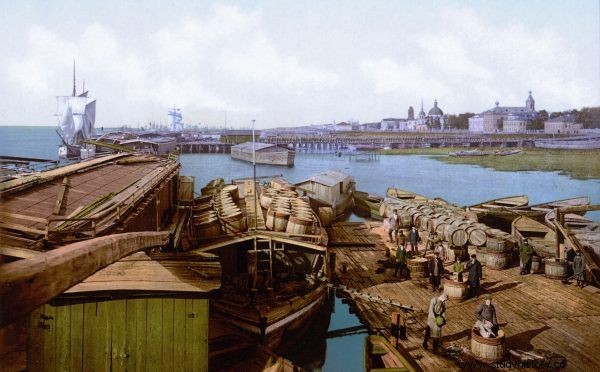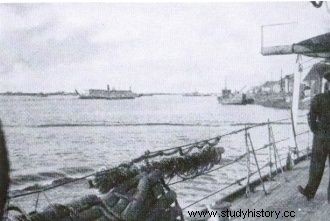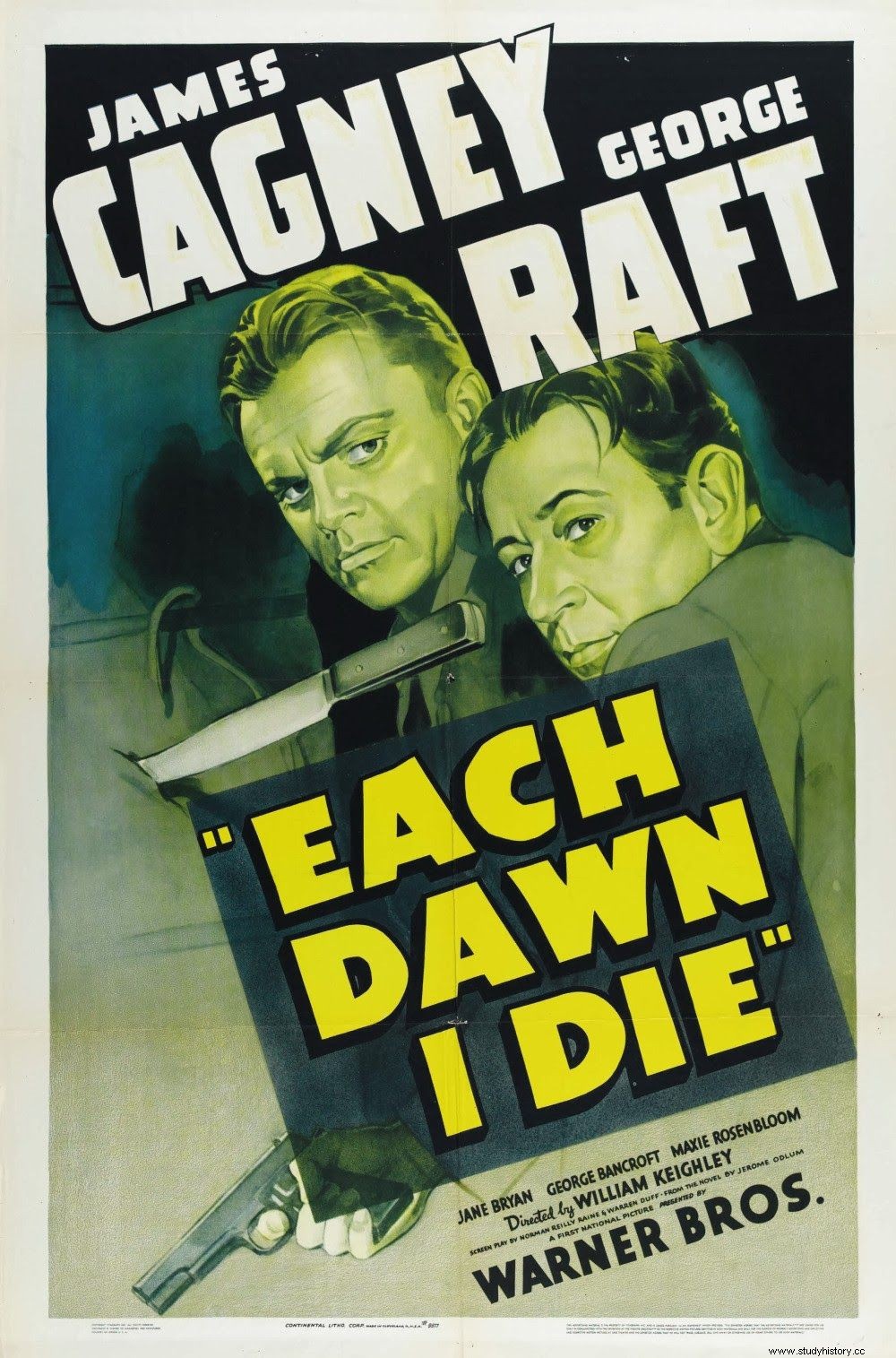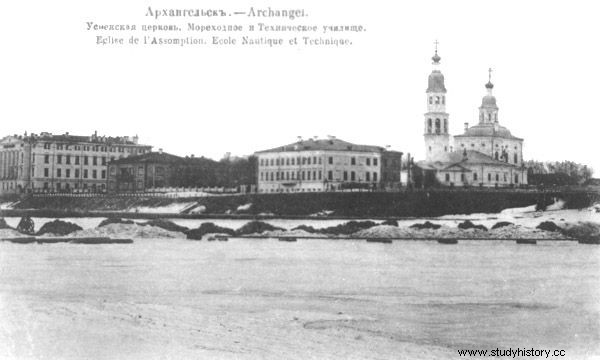On July 10, 1942, a battered convoy P.Q.17 arrived in Arkhangelsk. Of the 36 vessels, only 11 British seamen, who risked their lives to provide supplies to the Soviets, were forced to stay in a gloomy city in the far north for two months. They timidly hoped that, as in every port, at least the company of beautiful ladies would make their days more pleasant and allow them to forget about the tragic sea battle.
Of course, there was no shortage of women in Arkhangelsk - men went to the war (which so far was definitely not in the way of the Soviet Union), so they took over many responsibilities in the rear.
British war correspondent Godfrey Winn was stranded in Arkhangelsk along with the rest of the Allied sailors. In his memoirs, he wrote not only about poverty and hunger among the eastern allies, but also about contacts with the fair sex. Contacts that turned out to be an unpleasant surprise for the boys from the Royal Navy…
Natasha the policewoman and a Soviet dance party
Already a few hours after disembarking, Godfrey was stopped by one of local Amazon policewomen. In his memoirs, published under the title "P.Q.17:The story of a war correspondent about the tragedy of the convoy", he noted:
She must have noticed how we were hanging around and put into effect the orders she must have received before. We may have been allies at sea, but on land we were foreigners and all foreigners are potential spies to watch over (p. 190) .

Sailors waited two months spent in this place. They wanted to diversify their boring existence with flirting. Arkhangelsk on a postcard from 1896 (source:public domain).
This time it ended up being reprimanded and escorted to a safe place. Later, however, contacts with Soviet ladies were only supposed to move down the slope.
The same evening, the author joined the International Club for a dance organized for the Allied seamen. On the surface, everything looked normal - first there was a concert, then the screening of the film "Every Dawn I Die", and finally the couples went to the dance floor. Only the partners did not show much commitment:

Arkhangelsk as seen from the deck of HMS Pozaric. The seafarers do not yet know how warm their welcome awaits ... (example photo from Godfrey Winn's book entitled "P.Q.17:The War Correspondent's Tale of the Tragedy of the Convoy", Finn 2011).
The professional dancers from the Palais de Danse were much more lively and talkative than the club hostesses who had the great opportunity to become ambassadors of their country and instead acted like the warders during the dances in the prison . True, some of them had lipstick on and one or two had dyed hair, but their facial expressions were highly discouraging.
They looked like robots. They hardly smiled at all and did not make themselves known, that hitting a British sailor would give them any pleasure. (...) There were no requests for encores tonight, no couples were formed that would later slip out into the city (p. 193) .
It ended up that before the club closed, the Royal Navy boys preferred to dance ... alone with themselves, rather than risk another scorn . The author reported on the bitterness of young British people, but also tried to get to the bottom of the whole situation:
I don't think the girls themselves are to blame for their stiff demeanor and cold reaction to any innocent advances. Apparently they had their orders - no fraternization - and it was as if they were aware all the time that an NKVD agent was watching them that will see every moment of weakness, every friendly gesture towards strangers (p. 193) .

The screening of the film "Each dawn I die" did not incline Soviet girls more favorably towards the escorts ...
Unsuccessful pick up for the candy bar
Under the watchful eye of the ruthless Soviet security, even hard currency and proven methods of pickup did not help. Godfrey repeated one of his colleagues' account of a bad night:
I was pretty good with my game, we just danced and you know I can do some better tracks (…). When the music stopped, I say, "How about making an appointment?" But she just shook her head so I guess from the second thread meeting, but then a good thought occurred to me.

I remembered I uploaded the Nutty Bar in the pocket just in case I run out of cash.
So I pull it out and hand it to her with an elegant bow and all. "Please, Natasha," I tell her, "it's worth fifty rubles, but it's yours, and I'll have more if you let me show myself the golden rivet in the hull." (...) You know, it wasn't funny at all, I realized that she didn't understand what I was saying to her at all, but I think to myself, I will surely find out when she sees the bar, so I put it in her hand.
But imagine she dropped it right away, like some goddamn time bomb. And she looked at me as if I didn't know what he wanted to do to her . Before I could say it was just so friendly, she turned and walked away, leaving me alone with the candy bar at my feet (pp. 194-195) .
This article has more than one page. Please select another one below to continue reading.Attention! You are not on the first page of the article. If you want to read from the beginning click here.
To Siberia for chatting with spies
The behavior of a Soviet girl is not at all difficult to understand. The story of another seaman told a lot, as told to Godfrey by one of his ship's captain's guests.
A few weeks earlier, a delivery of chocolate had arrived at the British naval base in Arkhangelsk. One of the officers wanted to thank the Russian woman who diligently cleaned his quarters, keeping it perfectly clean. He handed her some chocolates:
He knew that such a gift would be a hundred times more valuable than money, because there was nothing available in stores. She thought the same. It was manna from heaven to her, and she thanked him warmly and went home. He never saw her again (p. 195) .

You could hit the Urals for talking to an Englishman. The postcard shows the Arkhangelsk embankment in 1912 (source:public domain).
Of course, the Soviet side did not admit anything, but rumors and experience showed that the girl had to be sent as punishment - for accepting a few bars of chocolate - beyond the Urals.
The story of a crewman named Smithie, who happened to meet a translator who had just finished his studies at Arkhangelsk University, was similar in the office of the Harbor Master's Office. The girl was delighted that she had the opportunity to improve her colloquial English, while Smithie finally had the opportunity to talk to the woman on topics other than war or different kinds of food (p. 230) .
The sailor offered her another meeting - a completely innocent walk around the port. It turned out that not all Soviets adhered strictly to the party line. There were also those who wanted to get to know England, wanted to be friends. However, the nice episode came to an end quickly:

- Reported to Ania - continued Smithie . - Tonight when we met, she was in tears. We only talked for a minute. She said they threatened her that if she talked to me out of the office one more time, she would be penally transferred, and maybe even would never see her family again . (…)
It must be terrible to be watched this way. One walk with a foreigner on the waterfront and they tell you:do it again and you will go on vacation to the Urals. Got an idea? (pp. 230-231).
We will not deal with capitalists!
Of course, there were also completely opposite cases. Finally, let's quote one of this kind. At the above-mentioned dance, the Londoner Ernie Davidson also tried to charm one of the girls. This one turned out to be a real Bolshevik:
Anyway, she talked pretty well, she studied at the university and I say to her, "Natasha, we think your uncle Józef is O.K. and she replied, "My name is not Natasha, but Olga." Well, I keep saying, "Olga, we think your Uncle Joseph is fine and your Red Army and your women." (...) And she just said "We consider you rotten capitalists" (p. 194) .
Source:
The article is based on the book by Godfrey Winn entitled "P.Q.17:A war correspondent's story about the tragedy of the convoy" (Finna, 2011).
